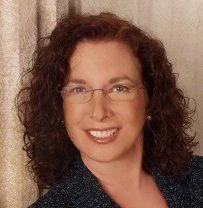PALOS VERDES, CA – With more than 30 educational sessions on tap, plus compelling Keynote content (see Keynote Conversation with Alec Ross), Construction Super Conference (CSC) is once again poised to showcase expert advice for mid- to senior-level professionals who work in the legal and commercial construction markets. Sessions feature in-depth education via the best experts in the industry.
Program schedules allow for ample opportunity to meet and network with representatives from the leading construction firms and the industry’s top construction attorneys. “Networking and learning has the added benefit of inspiration—the kind of inspiration that comes from getting out of the office and focusing on new ideas,” says Kevin Gaffney, group show director, CSC.
Those looking to enhance dispute resolution skills may choose to attend Maximizing Mediation and Arbitration Success with attorneys Deborah Bovarnick Mastin, Stephen Hilger, and William Franczek. News Print chatted with Mastin, a long time CSC attendee who is coming back for her third speaking engagement, to get a preview of her panel presentation segment.
 News Print: Among your colleagues, what persistent misconceptions surround the mediation and arbitration process?
News Print: Among your colleagues, what persistent misconceptions surround the mediation and arbitration process?
Deborah Bovarnick Mastin, arbitrator and mediator, Law Office of Deborah Mastin, Miami, Fl.: One of the misconceptions is that you can walk into a mediation conference and it starts when the conference starts, which is completely wrong. Mediation starts well before that. There should be lots of preparation that the mediator does with the lawyers and the parties ahead of the mediation conference. That’s what I’m going to be talking about at CSC. I’ll discuss the kind of preparation that would be effective and productive for attorneys to engage in with their clients, in advance of the mediation conference.
News Print: So all of the work prior to the in-person meeting, correct?
Mastin: Absolutely. One of the premises is that surprises don’t lead to settlements in mediation. People need to be informed to be able to evaluate their risk profile.
News Print: Who are your clients these days?
Mastin: My clients now are lawyers. I don’t deal with parties to a dispute directly, except in a neutral capacity.
News Print: What additional topics do you intend to cover during your time on the panel?
Mastin: I’m taking the lead in the mediation segment. Bill Franczek is taking the lead in the arbitration segment. My subtitle for the mediation segment is: “genius is 90 percent preparation.” I will be talking about effective ways to get prepared for an optimal mediation event. What questions should you ask your clients? What do you need to know about the claim? What do you need to know about the other side’s view of the claim? How can you find common ground? What are the research and evaluation needs to be done in advance of the hearing? What are topics to discuss with clients about their goals and their deal breakers—all while trying to bring more options to the process. What haven’t the clients thought about yet? What haven’t they suggested? Where else could there be overlapping points of agreement? What is the strategy for planning the negotiation session? Mediation is a facilitated negotiation, so I want to talk about effective ways to negotiate. I want to help attendees to enhance their negotiation skills.
News Print: What are the less tangible parts of the mediation process?
Mastin: A lot of what a mediator does is managing the emotional temperature in the room. We’re emotional beings who think; We’re not necessarily thinking beings who have emotions. Again, surprises don’t lead to settlements.
News Print: What is the proper way to view mediation?
Mastin: This is business; this isn’t justice, and you don’t go to mediation to get justice. You go to arbitration to get justice. You go to court to get justice. Mediation is a different dynamic altogether. It’s business, at least in the construction arena, which is where I do most of my work. People do business with people they like and trust, so the psychological issues are: How do you build likeability and trust, and trustworthiness in your client so that your client can be more persuasive? I will be addressing some of that in the presentation.
News Print: How valuable are in-person conferences in 2019?
Mastin: I think they are enormously valuable. I prefer in-person conferences as a way of receiving information. It’s head and shoulders above getting something in a webinar or online, where you’re just sitting in isolation. I think being with other people and listening to their questions helps you expand the breadth of your understanding. And if you start with yourself and you end with yourself, you’re very limited in what you can get from the experience. I’m a really big fan of in-person conferences. The whole point is to stand on other people’s shoulders, not to be limited by your own experience. With that in mind, Bill Franczek is going to be addressing how to be a better advocate in arbitration proceedings, and Steve Hilger will present on the differences of trial vs. arbitration preparation, and how best to present a case to meet the needs of the arbitrators.
Maximizing Mediation and Arbitration Success takes place Dec 16 from 2:30 p.m. – 3:45 p.m. at the Terranea Resort in Palos Verdes, California, as part of the Construction Super Conference.

